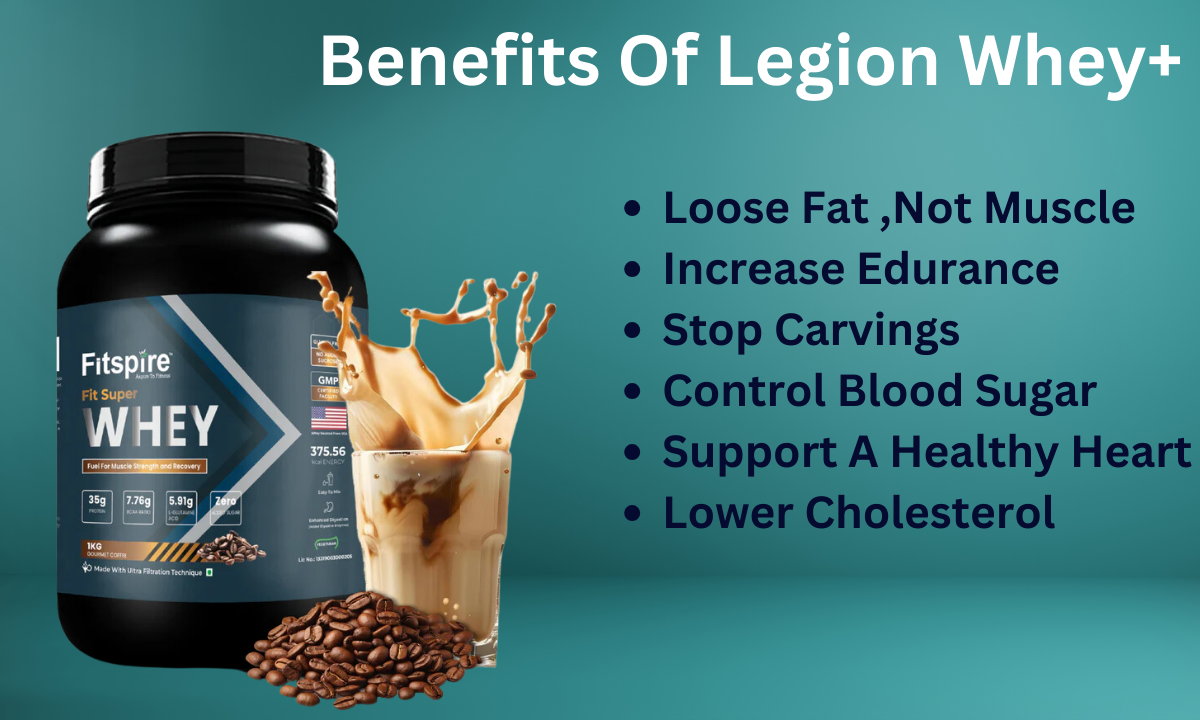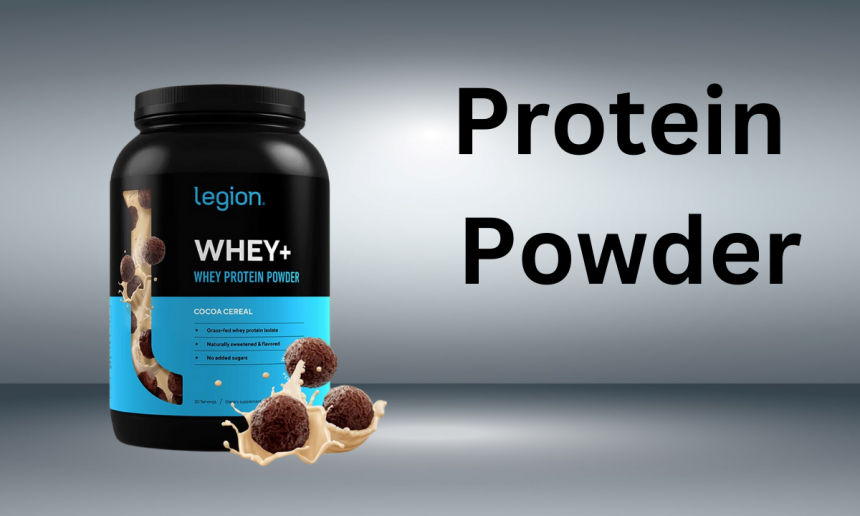Legion Whey+
With all-natural ingredients, no added sugars, strong manufacturing standards, and third-party testing, Legion Whey+ is our top pick for the best overall protein powder for sensitive stomachs. And while we’ve done a top-to-bottom Legion Whey+ protein review, we’ll share the cliff notes here.
What Is Whey Protein?
Remember the old nursery rhyme about Little Miss Muffin eating her curds and whey?
Well, back before we were able to separate casein protein and whey protein from milk, we used to only get whey as a byproduct of cheesemaking. Once the curds, or firm cheese parts, were separated from the milk, the liquid that remained became known as whey.
Since most of the lactose is removed from the milk in the form of casein, whey becomes very low in lactose content, but very high in protein.
Whey is actually considered a complete protein because it contains all nine essential amino acids.
There are three kinds of whey protein.
How To Use
Mixing:
Combine one scoop (typically about 25g) of Legion Whey+ with 8-12 ounces of water, milk, or your favorite beverage. Use a shaker or blender for best results.
Timing:
For optimal muscle recovery, consume it within 30 minutes post-workout. It can also be taken in the morning or as a snack to boost your protein intake throughout the day.
Versatility:
Feel free to add it to smoothies, oatmeal, yogurt, or baked goods for extra protein.
Dosage:
Adjust the number of servings based on your daily protein needs and dietary goals, but avoid exceeding the recommended serving size.
Benefits Of Legion Whey+
Lose Fat, Not Muscle
When you finally start building up some muscle, the last thing you want to do during a workout is lose muscle instead of fat. Anyone who’s worked hard to gain muscle mass knows that keeping it is just as important as building it.
If you’re struggling to get enough protein every day, whey is one of the easiest ways to get more.

Increase Endurance
Muscle Recovery:
Rapid recovery from intense workouts helps maintain training frequency and intensity, crucial for endurance athletes.
Protein Synthesis:
Adequate protein intake promotes muscle repair and growth, reducing fatigue during prolonged exercise.
BCAAs:
The presence of branched-chain amino acids (BCAAs) can help reduce muscle soreness and fatigue during endurance activities.
Sustained Energy:
While not a direct energy source, maintaining muscle health through proper protein intake can enhance overall performance and stamina.
Stop Cravings
When you work out and feed your body healthy food, it can become a pain if you’re as busy as I am. I try to combat this with my quick healthy eating hacks.
But if you always feel like you’re hungry or fighting hunger pains, consider adding whey protein to your diet too.
One study on 28 obese men tested appetite responses and hormonal responses to whey protein.
Researchers gave the men four different drinks ranging in levels of fructose and whey. Four hours after drinking the beverages with 50 grams of whey, the men had significantly reduced levels of ghrelin, a hormone responsible for aiding appetite regulation by both stimulating your appetite and telling your brain that you’re full after meals.
Decreased levels of this hormone means less desire for snacking and fewer ways to get yourself in trouble with unnecessary calories.
Control Blood Sugar
Low Glycemic Impact:
Whey protein has a low glycemic index, meaning it has minimal impact on blood sugar levels compared to carbohydrate-rich foods.
Improved Insulin Sensitivity:
Some studies suggest that whey protein may enhance insulin sensitivity, which helps regulate blood sugar levels more effectively.
Satiety:
Protein can increase feelings of fullness, potentially reducing overall calorie intake and helping to prevent spikes in blood sugar after meals.
Muscle Maintenance:
Maintaining muscle mass is crucial for metabolic health. Higher protein intake can help preserve muscle, which in turn supports better glucose metabolism.
Support A Healthy Heart
A study done by the Department of Food Science and Human Nutrition at Iowa State University concluded that adding a whey protein drink to the diets of young subjects with high blood pressure lowered both their systolic and diastolic blood pressure. However, participants with normal blood pressure levels didn’t see the same lowering results.
The Journal of Dairy Science also brings good news; the study reports that giving both rats and healthy men a milk containing whey protein, not only lowered their triglycerides and systolic blood pressure, but raised their HDL levels, or good cholesterol levels.
If you also have other signs of heart disease, having cholesterol levels that are far outside the normal values can be a bad sign.
I found a study published in the Journal of Clinical Nutrition about how whey protein affected cholesterol levels of 11 obese, non-diabetic women. The participants received a whey protein supplement for four weeks. Researchers learned that subjects consuming the whey protein decreased their total cholesterol and decreased the amount of triglycerides in their livers.
Another study also examined this effect and was published in the British Journal of Nutrition. This time, overweight subjects were given either whey or casein supplements. As you can expect, the subjects taking the whey had lower cholesterol levels when the study was completed than the ones supplementing with casein.



